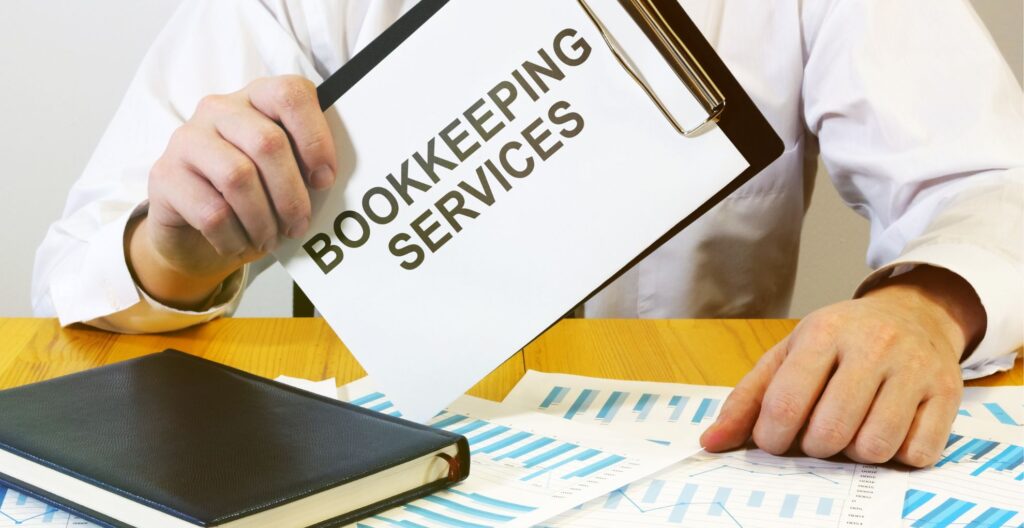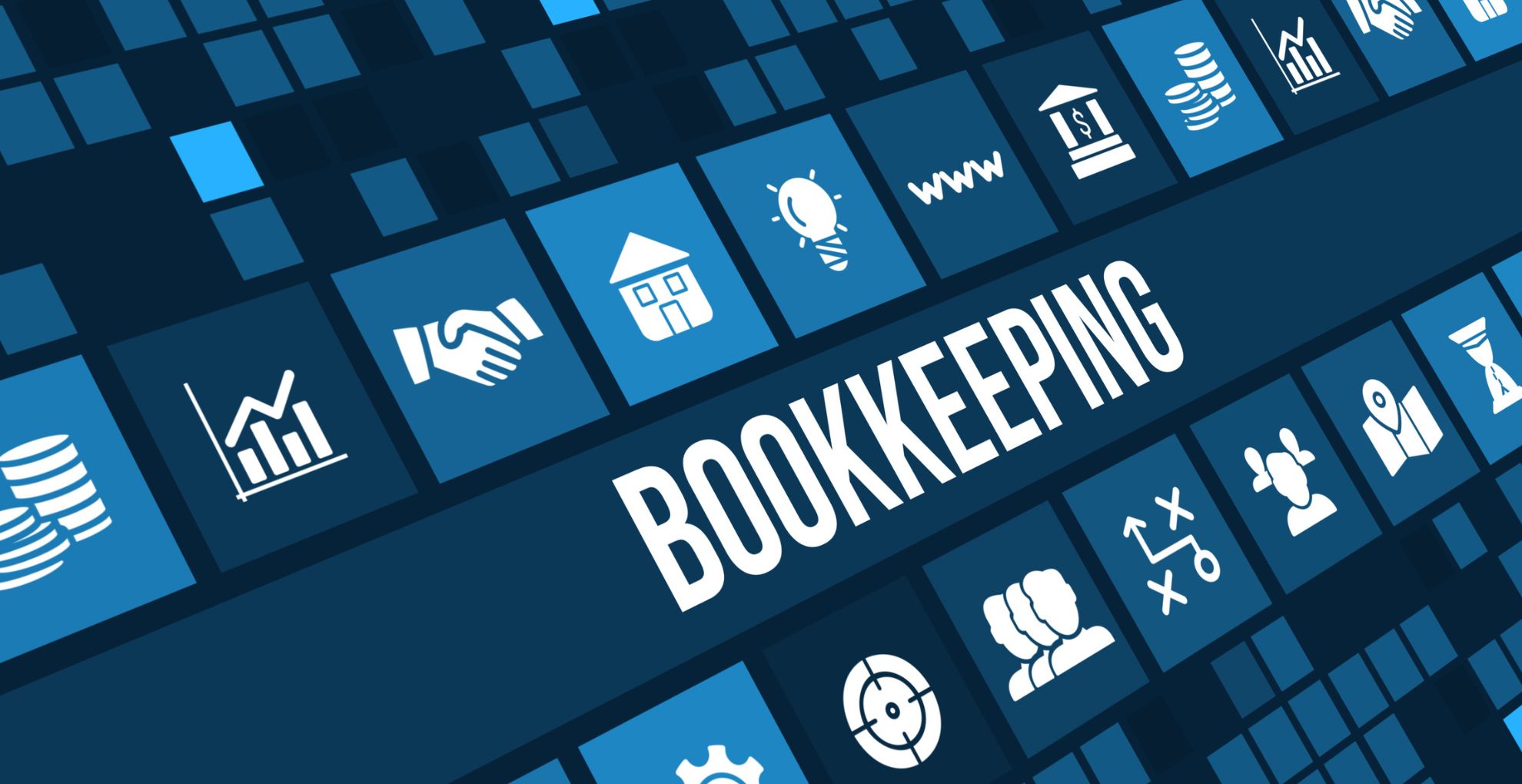When you run a business whether it’s big or small business keeping track of money is one of the most important things you need to do. From managing expenses to tracking income, it’s all part of making sure your business stays healthy. Unless you have a passion for numbers or a background in finance it can quickly feel overwhelming. That’s where a bookkeeper comes in.
What Exactly Does a Bookkeeper Do?
A bookkeeper is a professional responsible for maintaining the daily financial transactions and records of a business ensuring accuracy and organization in the company’s financial activities. Think of a bookkeeper as the person who keeps your financial world in order. They carefully record every transaction, ensure that all the numbers align and help maintain accurate up-to-date financial records for your business.
At the most basic level a bookkeeper keeps track of all the money that comes into your business and all the money that goes out. This includes things like sales, purchases, payments and receipts. They use this information to create records that you or your accountant can later use to make decisions, pay taxes or apply for loans.
Bookkeepers typically use software like QuickBooks, Xero or Wave to manage your financial data. They enter all your transactions into the system categorize them properly for example office supplies vs rent and make sure everything is coordinated with your bank statements.

Main Tasks a Bookkeeper Handles
Here are some of the most common tasks a bookkeeper might do for a business, recording daily transactions, managing accounts payable and accounts receivable, reconciling bank accounts, handling payroll, creating basic financial reports like profit and loss statements or balance sheets and keeping records organized for tax time.
Though a bookkeeper doesn’t usually file taxes or give big picture financial advice that’s what an accountant or financial advisor is for they play a key role in making sure your financial data is accurate and ready when it’s needed.
What’s the Difference Between a Bookkeeper and an Accountant?
A lot of people confuse bookkeepers with accountants and while they both deal with numbers and money their roles are different.
Bookkeepers are more focused on the day-to-day tasks. They make sure your records are correct, up to date and organized. Accountants on the other hand use those records to analyse your financial health. They can help you with budgeting, taxes, business planning and making big financial decisions.
Put simply, bookkeepers make sure the financial records are neat and accurate while accountants analyse those records to help you understand your business’s financial health.
Why Is Bookkeeping Important?
Accurate bookkeeping is the backbone of any successful business. Without a clear picture of your income and expenses it’s nearly impossible to tell whether your business is thriving or at risk of financial trouble. Accurate books help you in understand your profits and losses, make smarter business decisions, catch mistakes early, avoid cash flow problems and prepare for tax season.
Without proper bookkeeping you could end up overpaying on taxes, missing out on deductions or facing fines for inaccurate reporting. It can also make it much harder to get a loan or attract investors if your records are a mess.

Do I Need a Bookkeeper?
Now that you understand what a bookkeeper does you might be asking yourself ‘Do I really need one?’ The answer depends on your unique business needs and financial situation.
If you’re just starting out and have only a few transactions each month you might be able to handle the bookkeeping yourself using accounting software. But as your business grows and becomes more complex bookkeeping can quickly eat up your time and mistakes become more likely.
Here are a few signs that you might benefit from hiring a bookkeeper.
You’re Spending Too Much Time on Books
If you’re spending more time sorting through receipts and balancing your books than running your business, it’s a sign you need help. A bookkeeper can relieve you of the burden of managing financial records allowing you to concentrate on what you do best growing and running your business.
You’re Not Confident About Your Finances
If you frequently feel uncertain about your income, expenses or whether you can afford to hire someone new or invest in equipment a bookkeeper can provide the clarity and insight you need to make confident financial decisions. Having accurate and up-to-date financial records gives you the confidence to make smart business decisions.
You Keep Missing Deadlines
Do you often find yourself paying bills late? Forgetting to send invoices? Or scrambling to meet tax deadlines? A bookkeeper can help you stay organized ensuring that nothing slips through the cracks and helping you avoid costly mistakes that could hurt your business.
You Plan to Grow
If you’re planning to expand your business add new services or apply for funding having clean and organized books is a must. Investors, banks and potential partners will want to see your financials and messy or missing records can scare them away.
Hiring a Bookkeeper What to Expect
Hiring a bookkeeper doesn’t mean giving up all control over your finances. Instead, it’s about having a trusted partner who can help you keep everything on track. When you first bring on a bookkeeper they’ll likely ask for access to your bank accounts, receipts, invoices and any past financial data.
They’ll then set up your books or clean up your existing ones and begin managing your daily financial records. Most bookkeepers work remotely these days using cloud-based tools to stay connected. You can hire a full-time bookkeeper a part time one or even use a bookkeeping service that charges by the hour or by the task.
How Much Does a Bookkeeper Cost?
The cost of hiring a bookkeeper can vary based on your business’s specific needs, the frequency of service and whether you opt for a freelance bookkeeper or a professional bookkeeping firm. On average small business owners can expect to pay between $300 and $1,500 per month for standard bookkeeping services.
Though this might sound like a lot many business owners find that a good bookkeeper actually saves them money in the long run by preventing costly mistakes, saving time and helping them make smarter financial choices.

Can I Do My Own Bookkeeping?
Yes, it’s absolutely possible to handle your own bookkeeping especially when your business is just starting out. There are plenty of user-friendly tools like QuickBooks, FreshBooks and Wave that make the process more manageable. These platforms let you link your bank accounts, generate invoices and monitor expenses all in one place.
However, even with the help of great software, bookkeeping still requires time, accuracy and attention to detail. If working with numbers isn’t your strong suit or if your business finances become more complex as you grow it might be wise to delegate this responsibility to a professional bookkeeper. Doing so can save you time, reduce errors and give you greater peace of mind.
Final Thoughts
A bookkeeper plays a key role in keeping your business finances in order. They handle the day-to-day financial details so that you don’t have to. Whether or not you need one depends on your business’s size, complexity and how comfortable you are managing your own finances.
If you’re just starting out and have a simple business, you might be fine doing it yourself for now. But if you’re feeling overwhelmed, losing track of money or planning to grow hiring a bookkeeper can be a smart move. In the end good bookkeeping is about more than just keeping records, it’s about giving you peace of mind and helping your business succeed.


